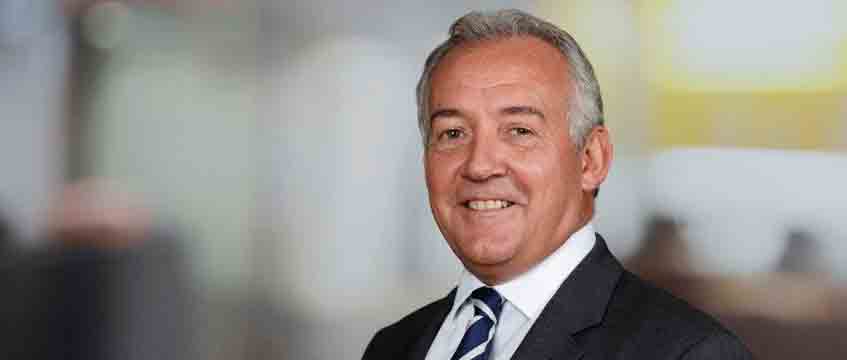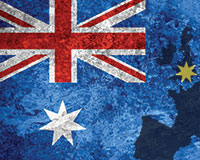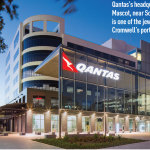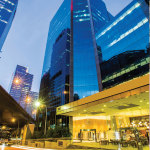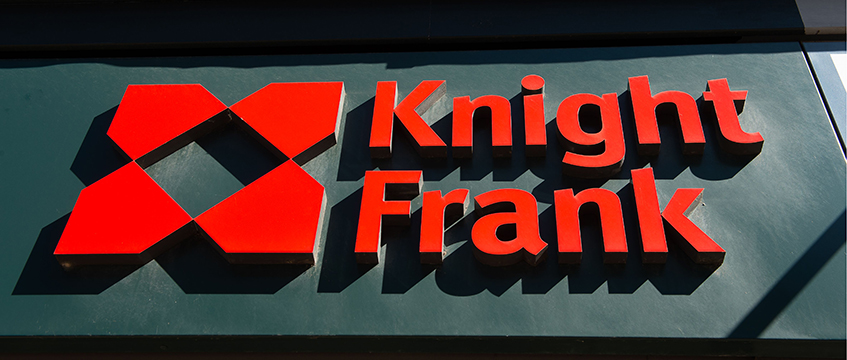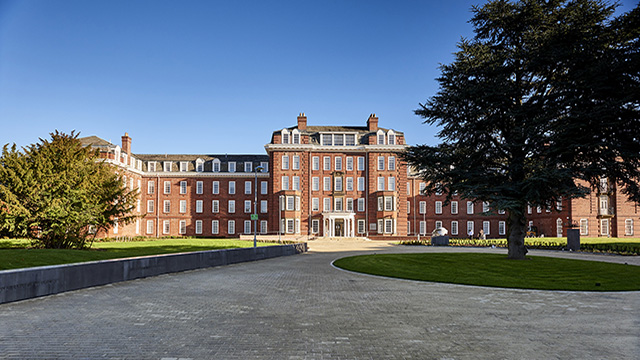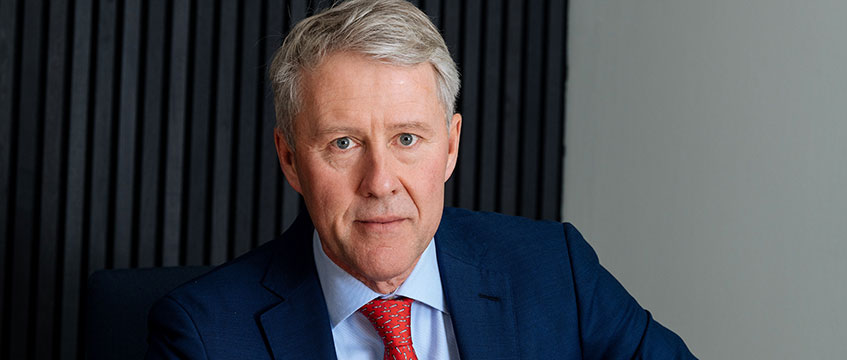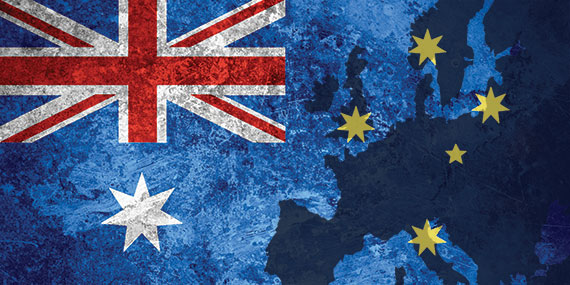
Talk to almost anyone in the Australian real estate industry about investing into Europe and the look that flashes across their faces is one of concern.
It is hardly surprising. Many of the country’s real estate investors had their fingers burnt particularly badly during the global financial crisis, where listed giants GPT and Stockland saw their purchases of UK property companies Halverton and Halladale come to a grim end.
Another Australian explorer, Mirvac, only escaped on an 11th hour gut call by its management deciding against buying the now defunct Kenmore.
So when Cromwell Property Group – another of Australia’s listed fund managers and property companies – bought the €5bn (£3.8bn) Valad Europe and its management from Blackstone in January 2014 for €145m, eyebrows were raised by many Down Under.
It was a move few Australian companies would have dared even to consider. But Cromwell chief executive Paul Weightman is convinced it was the right call. One month on from the departure of Valad Europe’s executive chairman Martyn McCarthy (19 December, p21), Weightman reveals his plans to expand the business and explains how he will use Cromwell’s mainly Australian investor base to channel funds into new Valad Europe vehicles.
The history
To fully understand the controversy surrounding the deal, it is worth going back to 2011. This was the year that Blackstone bought Sydney-listed Valad Property Group for $207m (£145m). Blackstone made its purchase to initiate its move into Australia and get its hands on the company’s balance sheet assets. It applied minimal value to the European fund management business.
Valad’s overseas expansion and debt pile meant it had been crippled by the downturn, allowing for the Blackstone purchase. In the eyes of the Australian market, Valad has never got over this and is still a tainted brand. This reputation was tempered somewhat by McCarthy, the man responsible for turning the European business around, and who chose to leave the business in December rather than pursue a proposed arrangement to take a permanent role with Cromwell in Sydney. He will remain a consultant with the European business, initially for six months. Managing director, David Kirkby now leads the European business.
McCarthy’s departure is understandable, says Weightman: “I think Marty’s run hard for many years, so he is spending time on private stuff that he has probably neglected for a while. So that’s a priority for him. He has created a lot of goodwill in Europe.”
Damned if you do…
As for the initial reaction to the deal, Weightman is unfazed by concerns in the Australian market. “The knee-jerk reaction from a lot of people in the market [to the purchase of Valad Europe by Cromwell] is ‘Oh no, it’s 2007 all over again.’ These guys are going offshore [investing overseas]. And that’s understandable because of the history of what has happened, people draw that conclusion,” he says. But I think the difference for us is it is a relatively small investment in something that has a tremendous upside.”
He adds that running a listed company inevitably puts you in the spotlight and, given the general need for Australian companies to diversify their portfolios, there is a bit of a “Damned if you do, damned if you don’t,” phenomenon.
“In 2006 and 2007, we would walk into meetings with analysts and they would say, ‘We’re putting a big sell on your stock because you haven’t gone offshore, you don’t have a development pipeline and you’ve got a lazy balance sheet – you’re carrying too much cash.’
“We would walk out and wonder what they could see that we couldn’t. To us, it was obvious we were at a point in the cycle when values were peaking and there were issues unfolding in the US. A lot of people consider us contrarian but we are not being contrarian just for the sake of it.”
Cromwell initially tried to buy Valad Europe in 2011, but lost out to Blackstone. Weightman tested the water again when he was in the UK for the 2013 Ashes – “The Lord’s test when we got smashed”. The business went up for sale formally in September 2014. By January the deal had been done.
A tainted brand
Weightman says the decision to buy came down to similarities between investment philosophies. Both companies were predominantly operating in the value-add space. “You generally have a lot of REITs which provide exposures to particular markets to investors,” he says. “So investors have effectively made their own decision just when they buy stock or not.
“Then you have your other class of managers who are predominantly private equity money, highly opportunistic and cyclically driven. In the middle, there are relatively few managers that actually get in and change the value of what they’ve got through rolling up their sleeves. That’s what we do and that’s what Valad does.”
But all the similarities and shared values in the world cannot change the fact that Valad does not have the best reputation in the Australian market. This is something Cromwell is addressing head on with the whole company, Valad Europe and Cromwell, to undergo a rebrand.
“The Valad brand is tainted in Australia, there’s no doubt about that, and I think that is a challenge because you can’t export that brand back to Australia [and Australian investors],” says Weightman. “So that is something we have got to deal with. In Europe, it is pretty well regarded and I think they have built up a lot of goodwill. That is why we are running it as Valad and Cromwell at the moment.”
But he adds that the present situation is not sustainable and there will be one overarching brand for both businesses before too long.
“Ultimately, you have got to have a single brand because it is hard to meet an investor in Hong Kong and say, ‘Hello, I’m from Cromwell, we would like you to invest in Valad in Europe, and we are all part of one business.’ We will work through that and there is a lot to think about in terms of the goodwill associated with brands in Australia, Europe and Asia. That process has started, and we are going to do it in a methodical way,” he adds.
Slow and steady
In terms of a future strategy for the business itself, while the Valad Europe business has grown to €5bn of funds under management, Weightman says the fund manager will benefit from a more steady source of capital through Cromwell and its investors – and should be able to run more stable, longer-term funds as a result.
“Over time, we would like to move the Valad business to have greater exposure to longer-term, annuity, recurring income funds rather than specific mandates or shorter-term funds,” he says.
“That is not to say it won’t be an important part of the business because it will, but I think what Valad has lacked for the past few years is the capital support you need to get those larger funds up and running.”
In order to do that, Cromwell is looking to use its retail investor base to launch a new fund of more than €500m in 2016. This will be to invest in the value-add European sector, specifically for private investors looking to transport capital out of their home markets. This will be from both its Australian retail investor base and from South Africa. Cromwell has ties in the country as it is 25.6% owned by Johannesburg-listed Redefine Properties.
“What we would like to do is build a single platform, but give multiple points of entry so that you can enter in a structured way,” he adds. “If we have a Valad business that has multiple funds with a transaction focus, with different mandates, sectors, and countries, but a single platform to enter through, that reflects the Cromwell style.”
Cromwell’s fund management business now has A$11.9bn (£5.8bn) of assets under management, including a substantial retail funds business. It also has A$2.1bn of Australian assets on its own balance sheet and a market cap of A$1.8bn.
Commodities and confidence
Like many Australian investors, Weightman is wary of both the way overseas investors have heated up some domestic markets and the impact the end of the mining boom has had on its cities with resource-led economies. But he remains confident that the Australian market is only heading in one direction.
“Every market is different and we are at the start of a long, slow growth profile in Australia,” he says. “We are coming out of the commodities boom, the fall in the Australian dollar has had an initial shock but I think we have largely got through it.
“We will feel the after effects for some time but ultimately a lower dollar – which is driven by the fall in the commodities market – is a good thing for Australia. What tends to happen is you see people, resources start to be deployed into the things that are tradable globally, and you see an improvement in business and financial services, and that brings about improvements in office markets like Sydney.”
In buying Valad Europe, Cromwell has dared to go against the grain. Not only that, it has gone against its domestic market’s expectation of what an Australian company should be doing.
But with the weight of capital that needs to diversify outside of the country, it could well prove to be a risk worth taking.
To send feedback, e-mail david.hatcher@estatesgazette.com or tweet @hatcherdavid or @estatesgazette





